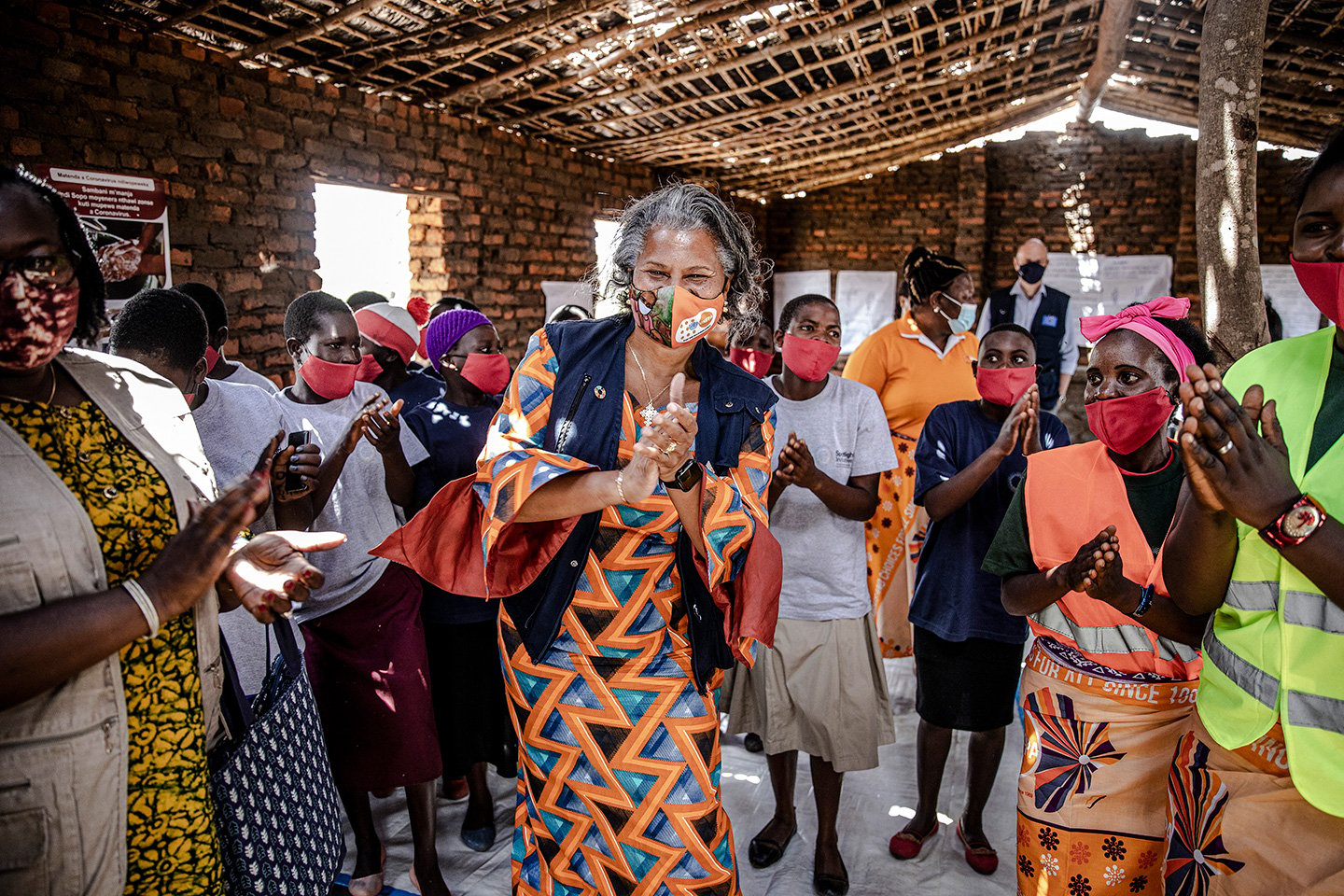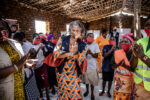UNFPA Regional Director for East and Southern Africa Dr. Julitta Onabanjo dances and sings while girls under the Spotlight Initiative during her visit at Tilimbike Safe Community Space in Chiludzi village, Dowa, Malawi on November 2, 2020.
The United Nations Population Fund (UNFPA) is an international development agency that promotes the right of every person to enjoy a healthy life with equal opportunities. In doing so, the organisation constantly strives to curb GBV and its effects.
The UNFPA’s gender specialist for eastern and southern Africa, Julie Diallo, says their tagline – “From 16 to 365 … the march continues in Africa” – is proof of their commitment to root out GBV. Instead of encouraging “armchair activism”, the UNFPA’s focus, according to Diallo, is on sustained commitment and daily action and urgency.
Statistics indicate that violence against women and girls, including female genital mutilation and child marriage, has increased by a staggering 30% globally since the onset of the Covid-19 pandemic in early 2020. This, Diallo says, is threatening to erode critical gains made in securing the right of women and girls to live their lives free of violence.
Men and boys are not excluded from the UNFPA’s awareness process. Initiatives where they are encouraged to either effect change or change themselves and reflect on their behaviour are also supported by the UNFPA. These initiatives include social media campaigns and engagements, outreach through music, and community dialogues.
The UNFPA is the UN’s lead agency in coordinating GBV responses in emergencies. Through the organisation’s programmes, service providers are trained to manage GBV cases, offer psychosocial assistance, and provide rape kits and medical treatment to survivors. “We work with governments to ensure a multisectoral approach to prevent and respond to GBV,” says Diallo, adding that according to the Sustainable Development Goals, “we only have 10 years left to eradicate GBV, meaning now is the time to act”.
Other examples of the UNFPA’s involvement in the fight against GBV are its essential services package for survivors, currently rolled out in several eastern and southern African countries. The organisation also assists governments with collecting and analysing data, which is used to develop evidence-based GBV programmes.
According to Diallo, school closures due to Covid-19 lockdown restrictions have made young women and girls even more vulnerable to GBV. Statistics show that about 13 million adolescent girls (aged 15 to 19 years) have experienced forced sex during this period. In light of this, the UNFPA plans to increase its engagement with traditional leaders to work on community-led initiatives that lead to sustained norm changes and the end of all forms of GBV.










